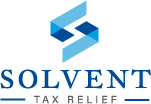One way the IRS might attempt to collect payment for tax debt is through wage garnishment. A wage garnishment, also called a levy, is when the IRS seizes your wages in order to pay off, or satisfy, a tax debt. The IRS is able to levy your wages or any other source of income, and they can even issue a levy to businesses you work with as an independent contractor. If this happens, the business is required to send your wages directly to the IRS.
If you have been affected by a wage levy, the best thing to do is reach out for professional tax resolution services. At Solvent Tax Relief, our professionals are experienced in helping individuals remove wage garnishments. Reach out to our team at 800.985.9426 to learn more.
What Is a Wage Garnishment or Wage Levy?
 The IRS will take as much as they can from your wages and other assets in order to satisfy a debt. A levy is issued only if a taxpayer neglects or refuses to pay their taxes. Before your wages are garnished, the IRS will give you notice of at least 30 days. Then they can contact your employer to find out how to collect what you owe. The IRS might take 25% of your paycheck, and they have a legal claim to any bonuses that you receive as well.
The IRS will take as much as they can from your wages and other assets in order to satisfy a debt. A levy is issued only if a taxpayer neglects or refuses to pay their taxes. Before your wages are garnished, the IRS will give you notice of at least 30 days. Then they can contact your employer to find out how to collect what you owe. The IRS might take 25% of your paycheck, and they have a legal claim to any bonuses that you receive as well.
There are several ways to remove a wage garnishment. These include the following:
- Pay the outstanding debt in full
- Setting up an installment plan
- Economic hardship
- Filing for bankruptcy
Wage Garnishment Release
For many individuals, paying their tax debt in full immediately is not an option. They may have ended up in this situation because their tax debt is more than they can afford to pay. However, an installment agreement with the IRS is one way to have wage garnishment removed. The IRS prioritizes receiving partial payment over no payment, and if you agree to pay monthly on your tax liability, the IRS will remove your wage garnishment.
If you can demonstrate that the wage levy is causing you economic hardship, your levy might be released. The IRS will require a thorough examination of your finances. In these situations, you may qualify for currently not collectible status, which means that the IRS cannot collect on what you owe. During the time when you are in currently not collectible status, it’s also possible that the statute of limitations will run out on when the IRS can collect.
Finally, filing for bankruptcy can be a form of wage garnishment release. Filing for bankruptcy will immediately halt all collection action. In some cases, the entire tax debt might be discharged.
How to Avoid Wage Garnishment
While the best way to avoid wage garnishment is to pay your taxes in full every year, the next best thing is to respond promptly to notices from the IRS. The IRS will let you know well in advance that they are attempting to collect on your tax liability. Before this happens, reach out for help from a professional tax relief service to help you deal with the IRS.
Contact Solvent Tax Relief
Solvent Tax Relief was established to help taxpayers settle tax debt and get back to good standing with the IRS. We know that dealing with the IRS can be complicated. To make sure that you file all of the right information in the right time frame, contact a tax professional. At Solvent Tax Relief, we provide tax resolution services for individuals and businesses. If you are facing a levy such as a wage garnishment, our tax professionals can help. Reach out to Solvent Tax Relief at 800.985.9426 to learn more about how we can help resolve your tax debt today.
